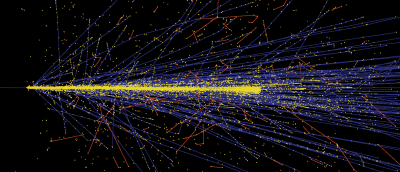NUFRA2007 – International Conference on Nuclear Fragmentation
From Basic Research to Applications
September 24 - October 1, 2007, Kemer (Antalya), Turkey

Topics
- Fragmentation and multifragmentation in nuclear reactions
- Nuclear liquid-gas phase transition
- Equation of state of isospin-asymmetric matter at subnuclear densities
- Nuclear composition of stellar matter in supernova explosions
- Synthesis of heavy and superheavy elements
- Fragmentation reactions in cancer therapy with hadron and ion beams
- Spallation reactions for transmutation of nuclear waste and energy generation
- Nuclear fragmentation reactions induced by cosmic radiation
The conference is jointly organized by
- Frankfurt Institut for Advanced Studies (FIAS), Goethe University, Frankfurt, Germany
- Gesellschaft für Schwerionenforschung (GSI), Darmstadt, Germany
- Selçuk University, Konya, Turkey
Organizing Committee
- A.S. Botvina, co-chair, INR, Moscow, Russia
- W. Greiner, FIAS, Frankfurt, Germany
- M.N. Erduran, Istanbul University, Istanbul, Turkey
- M. Cem Güçlü, Istanbul Technical University, Istanbul, Turkey
- K. Langanke, GSI, Darmstadt, Germany
- I.N. Mishustin, chair, FIAS, Frankfurt, Germany
- H. Oeschler, Darmstadt University of Technology, Germany
- R. Ogul, local organizer, Selcuk University, Konya, Turkey
- J. Reinhardt, J.W. Goethe University, Frankfurt, Germany
- K.-H. Schmidt, GSI, Darmstadt, Germany
- W. Trautmann, co-chair, GSI, Darmstadt, Germany
Motivation
In recent years considerable progress has been achieved in the study of nuclear reactions at intermediate and high energies leading to the disintegration of nuclei. These reactions include many physical processes, ranging from evaporation of light particles and fission at low excitation energies, to multifragmentation and vaporisation at high excitations. The previous studies have contributed a lot to our understanding of properties of both finite nuclei and nuclear matter at subnuclear densities and moderate temperatures. In particular, they have provided a strong evidence for a liquid-gas phase transition in finite nuclear systems. The knowledge accumulated in this field is needed for a realistic description of nuclear matter under extreme astrophysical conditions, for example, in supernova explosions. At the same time, nuclear fragmentation reactions appear to be important in many practical applications. They include using proton and ion beams for cancer therapy, transmutation of radioactive waste, new accelerator-driven methods of energy production, protection of space missions against cosmic radiation.
The aim of this conference is to bring together leading experts from
different fields, summarize the present status of research and outline
future goals, strengthen cooperation between the groups, exchange
ideas and experience. The site and the schedule of the conference will
provide excellent possibilities for informal communication between
participants and for establishing new collaborations.
Support
We hope to attract some limited funds for local support of some participants who otherwise might be unable to attend the conference. Especially, we encourage students and young researchers to attend this conference. We will try to provide means for supporting their participation. Please let us know as soon as possible about your needs.
Information for speakers
It is planned to establish a depository of talks on the conference website. All speakers are asked to provide us with a suitable electronic version of their talk at the time of the conference. PDF files are preferred, but other formats also can be accepted.
Resources
Sponsors
The conference is sponsored by the following organizations:
- FIAS (Frankfurt Institute for Advanced Studies)
- TUBITAK (The Scientific and Technological Research Council of Turkey)
- GSI (Gesellschaft für Schwerionenforschung)
- TAEK (Turkish Atomic Energy Foundation)
- SU (Selçuk University)